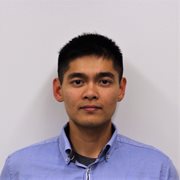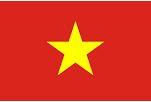Binh Cao

Binh is a fourth-year medical student at UCSF School of Medicine. Before immigrating to the U.S., he received medical training in Vietnam by volunteering for multiple medical mission trips to help deliver healthcare in rural areas. He graduated in 2019 with a degree in Microbiology from California State University East Bay, where he developed his interest in biomolecular techniques and infectious diseases. At UCSF, he participated in a global health project in Vietnam to study the diagnostic accuracy of point-of-care CRP testing in TB screening and became passionate about global health and tropical medicine. He was then fascinated by eye diseases during his clinical clerkship. His passions with global health and ophthalmology inspired him to take a research year to study molecular diagnostic methods for fungal corneal infection, a condition that disproportionately affects tropical countries. In this project, he will perform quantitative PCR and loop-mediated isothermal amplification assays for patients with corneal ulcers. He will then evaluate the sensitivity and specificity, as well as time to diagnosis of the two assays. His long-term career goal is to become an academic global health researcher dedicated to study cost-effective interventions that would help prevent blindness in resource-limited settings and worldwide.

Clinic-Based Molecular Diagnostics for Fungal and Acanthamoeba Keratitis
Vietnam National Eye Hospital
Vietnam
What does the Kean Fellowship mean to you?
It is my honor to receive the Kean Fellowship. The Kean Fellowship provides me with a great opportunity to learn more about tropical medicine and build a foundation for my future career in global health. In addition, through this fellowship, I will learn valuable lessons from my mentors from the U.S. and from the low- and middle-income country.
What do you anticipate learning?
Besides learning how to perform molecular assays, l will learn fundamental skills that will allow me to conduct research independently in the future, including data collection, management and analysis. In addition, I hope to learn more about conducting research in resource-limited settings, how to interact, communicate and foster partnership with scientists from a different country.
What interests you about tropical medicine and what problems are you interested in solving?
My interest in tropical medicine stems from my personal experiences during my medical training and multiple medical mission trips in Vietnam, where I realized the burden of infectious diseases in tropical countries as well as the disparity in access to medical care and health outcomes for people who were socially and economically disadvantaged. This interest turned into a passion when I participated in the project about point-of-care CRP testing for TB screening. I learned through this project that a simple but cost-effective intervention can have a tremendous impact on communities and societies, especially in the resource-limited settings. Although generally less severe than TB, many eye diseases have a heavy toll on patients’ quality of life, especially when they progress to vision loss. Despite their grave consequences and prevalence in tropical countries, several eye diseases remain neglected (e.g., trachoma, corneal infectious ulcer). Therefore, I am interested in studying cost-effective interventions that could help preserve and restore vision worldwide.